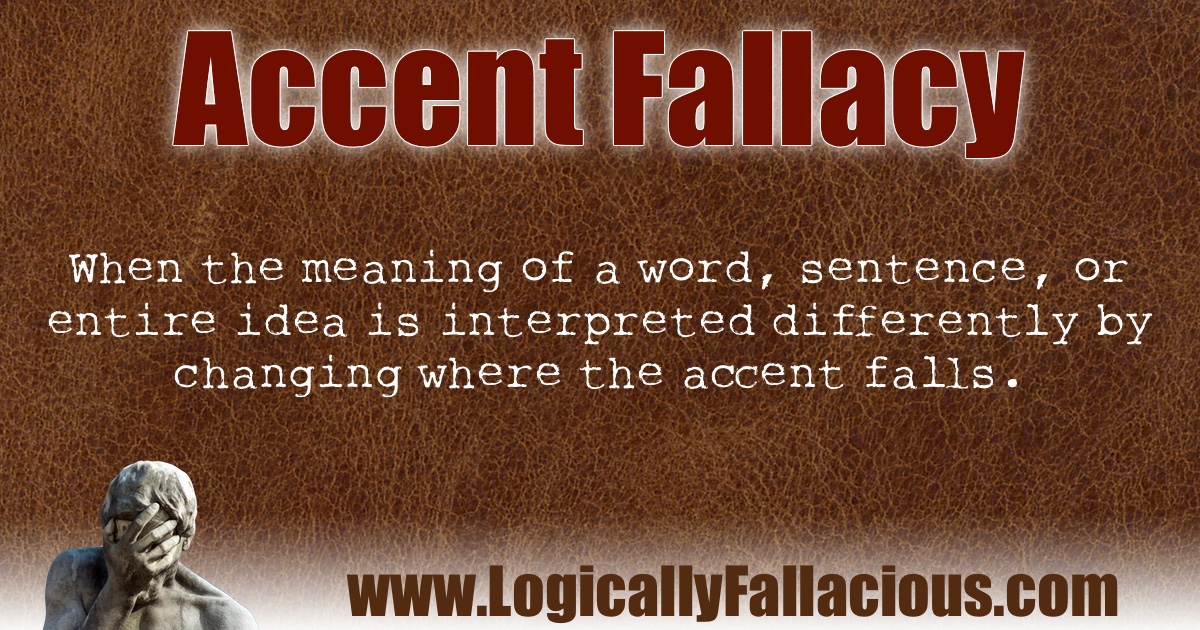accentus
(also known as: emphasis fallacy, fallacy of accent, fallacy of prosody, misleading accent)
Description: When the meaning of a word, sentence, or entire idea is interpreted differently by changing where the accent falls.
Logical Form:
Claim is made with accent on word X giving claim meaning Y.
Claim is interpreted with accent on word A giving claim meaning B.
Example #1: In the movie, My Cousin Vinny, Ralph Maccio's character, Bill, was interrogated for suspected murder. When the police officer asks him, "At what point did you shoot the clerk?" Bill replies in shock, "I shot the clerk? I shot the clerk?" Later in the film, the police officer reads Bill's statement as a confession in court, "...and he said, 'I shot the clerk. I shot the clerk.'"
Explanation: In the movie, it appeared that the police officer did understand Bill's question as a confession. So it did not appear to be a fallacious tactic of the police officer, rather a failure of critical thought perhaps due to a strong confirmation bias (the officer was very confident that Bill was guilty, thus failed to detect the nuance in the question).
Example #2: In the hilarious Broadway musical, The Book of Mormon, there is a musical number where one character is explaining how to bury "bad thoughts" by just "turning them off" (like a light switch). The character doing the explaining (in glorious song) is specifically explaining to the main character how to suppress gay thoughts when the main character's "bad thoughts" have nothing to do with being gay. After the instructions, the main character tries to make this clear by affirming, "I'm not having gay thoughts," to which the other characters respond "Hurray! It worked!"
Explanation: The stress on the "I'm" was ignored and confused for "Hey, I'm not having gay thoughts anymore!" Although this was comedy it portrayed an argument.
Tip: Our biases can cause us to miss the vocal nuance. Listen actively and critically, and try not to jump to conclusions. And you cannot turn off gay thoughts like a light switch.

References:
Damer, T. E. (2008). Attacking Faulty Reasoning: A Practical Guide to Fallacy-Free Arguments. Cengage Learning.
Questions about this fallacy? Ask our community!